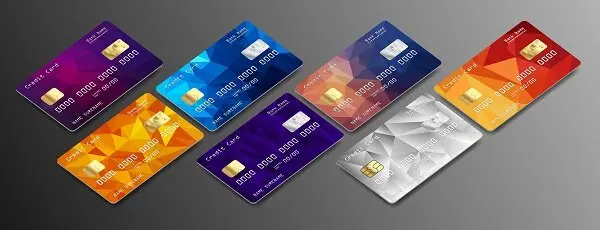How to Stop Credit Card Collection Calls

UpdatedJun 30, 2025
- Debt collectors, debt buyers, and original creditors are regulated differently.
- The Fair Debt Collection Practices Act (FDCPA) forbids debt collectors from harassing you or making unfair collection calls.
- The FDCPA doesn’t protect you from original creditors such as credit card companies.
Table of Contents
- What Happens When You Stop Paying Your Credit Cards?
- How Do Debt Collectors Work?
- How Do Debt Buyers Work?
- How to Stop Collection Calls from Credit Card Companies
- How to Stop Collection Calls from Debt Collectors
- What to Do if Collection Calls Continue
- Should You Stop Credit Card Collection Calls?
- What if You Ignore Debt Collectors?
- Taking Action
If you stop making minimum payments on your credit card accounts, that may trigger collection calls and other debt recovery efforts. This can make your life stressful. Understanding who’s contacting you—and your rights—is key to managing unaffordable credit card debt and stopping collection calls.
What Happens When You Stop Paying Your Credit Cards?
If you stop paying your credit card bills and you haven’t arranged a debt relief strategy your card issuers agree with, they’ll probably pressure you about paying your debt. They may do any of the following:
Send you demand letters.
Call you at home, on your mobile phone, or at work.
Close your account so that you can’t purchase things or take out cash advances.
Most credit card companies or banks report your missing payments to credit reporting agencies. Your credit score is likely to tank.
After about 90 days, issuers may transfer your debt to a collection agency, or sell it to a debt buyer. These parties then make their own collection calls.
Knowing whether you’re dealing with a creditor, collector, or buyer is key to stopping collection calls.
Federal law protects you from debt collectors and debt buyers by restricting what they can do legally. Original creditors, like banks and credit card companies, are freer to bug you.
How Do Debt Collectors Work?
A debt collector is an individual or company that collects repayment on overdue debts. Your original creditor may hire debt collectors who then contact you to collect money you owe.
How debt collection works:
Debt collectors find you with information from your original creditor.
Debt collectors call until you pay up.
There are rules. The Fair Debt Collection Practices Act (FDCPA) governs debt collectors. The Act was passed in Congress in 1978, and was "designed to eliminate abusive, deceptive, and unfair debt collection practices," according to the Federal Reserve.
Rules debt collectors must follow:
Debt collectors can't call before 8 AM or after 9 PM in your time zone.
Debt collectors can't contact you at work when they have reason to believe your employer bans these types of calls. That includes after you tell them you can’t get calls at work.
Debt collectors can’t harass you or lie.
Debt collectors must contact you through your attorney when they know you have one.
When you send a cease and desist letter, debt collectors must stop contacting you except to confirm that they’ll stop contacting you, or to let you know they’re suing you.
These FDCPA rules don’t apply to original creditors—the credit card companies, banks, or personal loan providers who loaned to you. Some states regulate collection calls from original creditors separately. Research state-level protections where you live so you can identify rule-breaking and take action.
How Do Debt Buyers Work?
Debt buyers purchase debts from creditors at a discount, and own them outright. They may use collection calls the same way original creditors do. Most debt buyers must follow FDCPA rules if their main business is collecting debts. That means they are bound by the same restrictions as third-party debt collectors, such as not calling before 8 AM or after 9 PM.
However, if a debt buyer’s main business isn’t debt collection (e.g., a bank that occasionally buys debt), they might not fall under FDCPA rules. This is uncommon but possible.
What the debt-buying process sometimes looks like:
Your original creditor hires a collection agency to call you.
The collection agency fails to collect your debt.
Your original creditor sells your debt to someone else, a debt buyer.
The debt buyer attempts to collect your debt.
How to Stop Collection Calls from Credit Card Companies
Stopping collection calls from credit card companies is tricky, since they’re not FDCPA-regulated. Federal protections are limited.
Some states, like California, have laws restricting creditor collection calls. If yours doesn’t, try these options.
Know your rights
Telemarketing laws may restrict collection calls. For example, the Telephone Consumer Protection Act (TCPA) bans creditors from spamming you with automated texts. Creditors can’t call you on your mobile phone using an auto dialer or pre-recorded message. However, they can manually dial your number.
The FDCPA doesn’t apply, but state laws could help.
Send a cease and desist letter
A written request to stop collection calls isn’t legally binding for original creditors, but may work. Send it via certified mail.
Work with a credit counselor
A credit counselor can help you budget, consolidate debt, and enroll in a debt management plan (DMP) if necessary. Once you enroll in a DMP, your creditor may agree to stop calling you.
File for bankruptcy
Bankruptcy erases debt and puts a stop to collection calls. The reason people don’t file bankruptcy right away is because:
1. You might be forced to sell some of the things you own to cover debts
2. Bankruptcy creates a public record and stays on your credit report for up to 10 years. During that time, your credit options will be more limited. A bankruptcy could also affect your ability to get certain kinds of jobs. That said, it may be worth doing if you’re drowning in debt and you need legal protection from your creditors.
Reach a settlement
Settlement—getting creditors to accept less than the full amount you owe to settle the debt—can stop collections calls, but the calls may continue during settlement talks. You can use a debt settlement company or handle it yourself. Creditors settle when they think it’s more profitable to get some of what you owe than nothing at all, so you need to be convincing in your negotiations. It can take months to settle each account, and 2-4 years to settle all of your eligible debts.
Most people who settle debts are already behind on at least some debts. Collection accounts have a negative impact on your credit. Your credit options could be more limited until the collection accounts age off. Collection accounts could also make you ineligible for certain jobs.
Debt settlement is worth considering if you don’t want the public record of bankruptcy, or you have assets that you don’t want the court to sell.
How to Stop Collection Calls from Debt Collectors
Stopping collection calls from debt collectors whose main business is debt collection is easier under FDCPA protections.
Here’s what you can do to stop collection calls from professional debt collectors:
Dispute the debt. Request a debt validation letter within 30 days. They must stop calling until the debt is verified. Collectors sometimes contact you with incomplete information, fishing for more. Dispute inaccurate information and make them confirm that their info is accurate.
Send a cease and desist letter: Legally stops collection calls, except for confirmation or legal notices. You can use CFPB sample letters and certified mail. If you hope to negotiate an agreement, sending a cease and desist letter could be counterproductive. The creditor legally won’t be able to contact you. You could also opt for telling collectors when to contact you, and how (i.e., email vs. phone) to limit contact.
Direct them to your attorney if you have one. Debt collectors must go through your legal representative when they know you have one.
If a debt is definitely yours, you can do the following to stop collection calls:
Enroll in a debt management program (DMP). A credit counselor can sometimes enroll you in a DMP. Creditors may agree to stop calling you once you’re enrolled.
File for Chapter 7 bankruptcy. When your debt is unpayable, you may want to file for bankruptcy (if you qualify). Filing for bankruptcy gives you automatic legal protection from creditors. They must stop trying to collect, and they can’t opt out.
Settle the debt. Once you settle a debt, you shouldn’t be contacted about that debt again. Negotiate directly or via a debt relief firm you can trust.
What to Do if Collection Calls Continue
Document everything
Keep detailed records. Note the date and time of calls, the name of the collector, the company they represent, and what was discussed. Keep a copy of everything. If you take legal action or file a complaint, this documentation may support your case.
File a complaint
Are debt collectors still contacting you after you’ve written to them to stop? You can file a complaint with the CFPB or your state’s attorney general’s office. These organizations can investigate your complaint. They may take action against collectors.
Should You Stop Credit Card Collection Calls?
Stopping collection calls does risk legal action from creditors. Keeping communication open might allow negotiation, especially if you’re using a debt settlement firm to field calls. If collection calls seem abusive or violate FDCPA rules, report them to the CFPB or talk to an attorney.
What if You Ignore Debt Collectors?
Debt collectors might sue you and win. If you don’t pick up the phone and read your mail, it might be quite some time before you realize you’ve been sued. If you’re too late to represent yourself in court, the debt collector could win the case automatically.
If a debt collector wins a case against you in court, they can take drastic action. With a court order, they may ask your bank to freeze your assets, and the bank must do it. They may then take money directly from your checking account to pay your debts.
Debt collectors may request that your bank garnish your wages, meaning a percentage of every paycheck automatically goes to your debt.
Ignoring calls is risky, because it may leave you unable to respond to a court summons for debt in a timely manner. You must show up in court to win your case.
Taking Action
To stop collection calls and tackle debt:
Look over your finances: Evaluate your situation to pick the best strategy.
Choose a solution: Consider negotiation, counseling, bankruptcy, or relief programs to manage collection calls.
Document calls: Record all collection call details in case you decide to make complaints.
Know your rights: Understand FDCPA protections against unfair collection calls.
Get expert help: Seek advice from financial advisors or debt professionals.
These steps can reduce collection calls and stabilize your finances.
Insights into debt relief demographics
We looked at a sample of data from Freedom Debt Relief of people seeking debt relief during May 2025. The data provides insights about key characteristics of debt relief seekers.
FICO scores and enrolled debt
Curious about the credit scores of those in debt relief? In May 2025, the average FICO score for people enrolling in a debt settlement program was 593, with an average enrolled debt of $26,333. For different age groups, the FICO scores varied. For instance, those aged 51-65 had an average FICO score of 589 and an enrolled debt of $28,538. The 18-25 age group had an average FICO score of 548 and an enrolled debt of $15,062. No matter your age or debt level, it's reassuring to know you're not alone. Taking the step to seek help can lead you towards a brighter financial future.
Collection accounts balances – average debt by selected states.
Collection debt is one example of consumers struggling to pay their bills. According to 2023, data from the Urban Institute, 26% of people had a debt in collection.
In May 2025, 30% of debt relief seekers had a collection balance. The average amount of open collection account debt was $3,203.
Here is a quick look at the top five states by average collection debt balance.
| State | % with collection balance | Avg. collection balance |
|---|---|---|
| District of Columbia | 23 | $4,899 |
| Montana | 24 | $4,481 |
| Kansas | 32 | $4,468 |
| Nevada | 32 | $4,328 |
| Idaho | 27 | $4,305 |
The statistics are based on all debt relief seekers with a collection account balance over $0.
If you’re facing similar challenges, remember you’re not alone. Seeking help is a good first step to managing your debt.
Tackle Financial Challenges
Don’t let debt overwhelm you. Learn more about debt relief options. They can help you tackle your financial challenges. This is true whether you have high credit card balances or many tradelines. Start your path to recovery with the first step.
Show source
Author Information

Written by
Cole Tretheway
Cole is a freelance writer. He’s written hundreds of useful articles on money for personal finance publications like The Motley Fool Money. He breaks down complicated topics, like how credit cards work and which brokerage apps are the best, so that they’re easy to understand.
What are collection calls rules?
Debt collectors can't call before 8 AM or after 9 PM in your time zone.
Debt collectors can't contact you at your place of business when they have reason to believe your employer prohibits these types of calls.
Debt collectors can’t harass you or lie.
Debt collectors must contact you through an attorney when they know you have one.
When you send a cease and desist letter, debt collectors must stop contacting you, except to confirm compliance or notify you of legal action.
Can I stop collection calls from my credit card company like I do with debt collectors?
No. Stopping calls from your credit card company (the original creditor) is harder, because they aren’t covered by the Fair Debt Collection Practices Act (FDCPA). You can send a cease and desist letter, but it’s not legally binding for them. Better options are negotiating with them, enrolling in a debt management plan, or checking if your state has laws limiting creditor calls.
What happens if I send a cease and desist letter to a debt collector?
If you send a cease and desist letter to a debt collector, they must stop calling you except to confirm they’re doing what you ask, or to notify you of legal action. Use certified mail to prove they received it. This is protected under the FDCPA, but it doesn’t erase the debt—they might still sue you.



